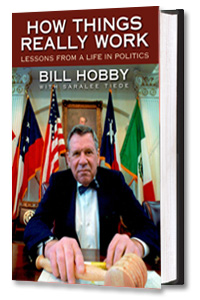DHAKA, Bangladesh — When Bangladesh won its independence from Pakistan in 1971 Henry Kissinger called her “the basket case of the world.”
Kissinger said that because Bangladesh is:
- Poor. Per capita Gross National Product is $155. Only one-third of its citizens can read.
- Crowded. If all the people in the world lived in the United States, the U.S. would be as densely populated as Bangladesh. If all the people in Bangladesh lived in Wisconsin, Wisconsin would be as densely populated as Bangladesh.
- Fast growing. The population (now 122,000,000) doubles every 25 years.
- Disaster prone. In 1991 a cyclone (hurricane) killed 150,000 people on April 29. Ten days later there were as many Bangladeshis as before. If all the water that falls on or flows through Bangladesh came at the same time, the country would be 30 feet underwater.
Maybe because of these problems, Muhammad Yunus, a Bangla economist and banker has created a bank to combat poverty that works in Bangladesh and is being transplanted to many Asian and African nations — and to the United States.
The idea is to lend money, without collateral, to the poorest people in the country, mostly women, so that they can earn money and improve their lives. They do so, and they pay back the loan, on time, 98% of the time. Some commercial banks in Bangladesh have payback rates in the thirties.
The Grameen Bank in Bangladesh has found the secret to this kind of banking. The loans are made to groups, usually of five people. The group members guarantee the loan and are therefore careful whom they let into the group. The loans are repaid in weekly installments within a year. No bill collectors will call. The payments are made at weekly meetings, in full view of all.
Peer pressure works. Not only is the loan repaid, the borrower must buy a share of Grameen Bank stock (for 25 U.S. cents) and save a small amount weekly.
Grameen is more than a bank, it is a social movement. Customers must promise to keep their children in school, not drink polluted water, not give dowries when their daughters marry nor take them when their sons marry, plant trees, grow and eat vegetables, dig latrines. Calisthenics are a part of the group meetings.
Grameen customers are encouraged to found nursery schools. The Grameen Bank operates textile mills and agricultural cooperatives, raises bees, finances schools, and other enterprises. In 1986, Grameen took over 108 bankrupt fish farms that had been started by the Bangladesh government and abandoned as failures. Now they are productive and profitable.
Muhammad Yunus got his doctorate in economics from Vanderbilt University and returned to Bangladesh in 1972 with, as he is fond of saying, “all the arrogance of a new Ph.D.”
In 1974, when Yunus was head of the Economics Department at Chittagong University, “a horrible famine (all famines are horrible) struck Bangladesh in 1974. One could not avoid seeing dead bodies of men, women, children who died of starvation — a long painful process of death.” Yunus later said that was when he “became a dropout from economics.”
Well, not exactly. In 1976, Yunus began the first pilot project in Jobra, a village near Chittagong. Today, Grameen Bank has 2,000,000 borrowers, 94 percent of whom are women. It has branches in half of Bangladesh’s 68,000 villages. Two-thirds of the branches are profitable. The average loan is $67. Interest is about 20%.
Bangladesh may receive more aid per citizen from foreign governments and through private contributions to non-government organizations than any other country in the world. Yunus is skeptical of many aid projects. He says that 75% of all the foreign aid received by Bangladesh since its independence in 1971 has gone back to the donor countries as payments to consultants and purchases of commodities and equipment.
“This aid money was spent in building roads, bridges, power plants, research institutions, and buying equipment for large manufacturing enterprises. The expectation was that this investment will benefit a large number of people…
“But, unfortunately, the bottom half of the population…particularly the women…hardly see any benefit coming to them. Often they are actually harmed by the projects,” says Yunus.
Yunus has made a difference, not only in Bangladesh but in the world. Grameen is Bangladesh’s most significant export.

